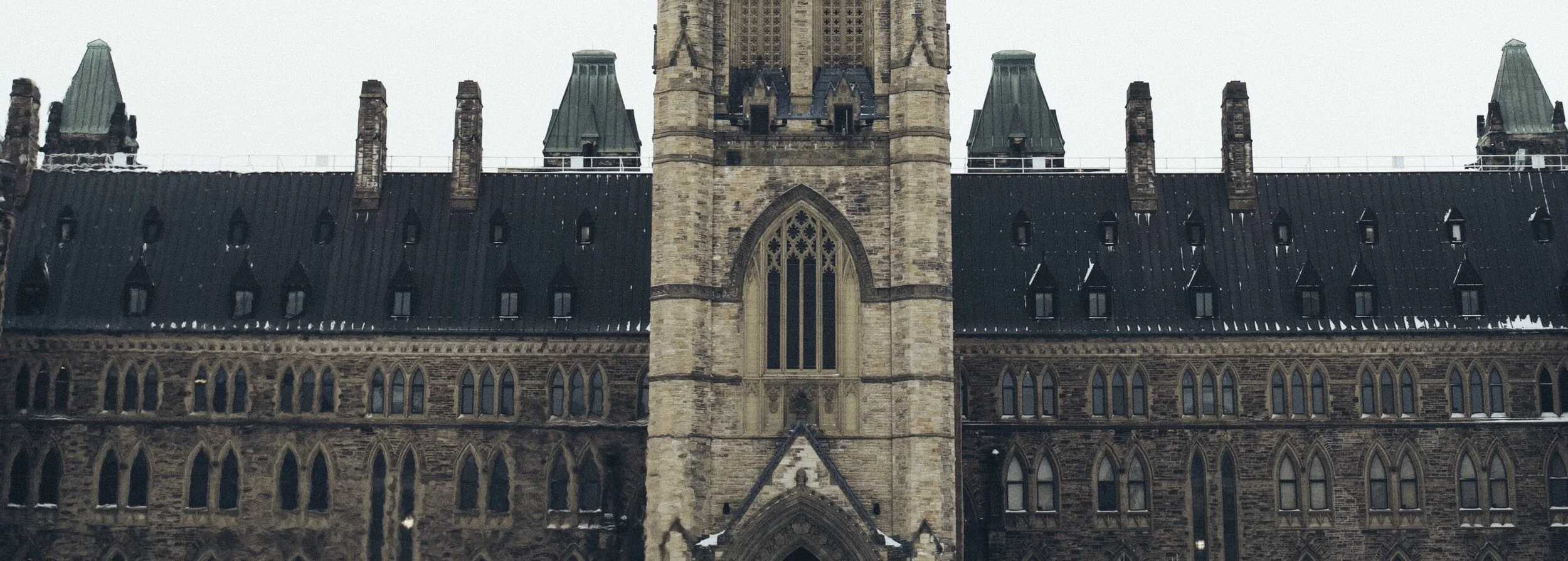Completing the Jordan framework: What does Section 11(b) of the Charter Consider?
William Rooney, 3L, Volume 79 Senior Editor
The Jordan framework determines whether there is a s. 11(b) violation (trial within a reasonable time). Senior Editor William Rooney argues that the recent decision in R v KGK limits the Jordan framework by excluding the verdict deliberation time from the s. 11(b) inquiry and more broadly, it “insulates” the judiciary from being held accountable for delays in reaching a decision.
Read More
When Aboriginal Rights Cross Provincial Borders: Examining Newfoundland and Labrador (Attorney General) v Uashaunnuat (Innu of Uashat and of Mani‑Utenam)
Ainslie Pierrynowski, 2L, Volume 79 Articles Editor
Articles Editor Ainslie Pierrynowski takes on Uashaunnuat, a Supreme Court of Canada case that dealt with an Aboriginal title claim extending across the Quebec-Newfoundland and Labrador borders. Pierrynowski argues that the case has meaningful implications for Aboriginal rights claims across provincial and, potentially, national borders.
Read More
Southwind v Canada: An Opportunity to Reconsider the Nature of Canada's Fiduciary Duty to First Nations?
Shimon Sherrington, 3L, Volume 78 Editor-in-Chief
Ahead of the Supreme Court of Canada’s review of Southwind v Canada, Editor-in-Chief Shimon Sherrington argues that the case presents an opportunity to clarify the application of ‘equitable compensation’ in First Nations-Crown relationship, and thereby redefine the nature of the Crown’s fiduciary duty to First Nations.
Read More
The Extraordinary Case of the Emergencies Act: What is the Role of the Courts?
Ryan Howes, 3L, Volume 78 Senior Editor
Senior Editor Ryan Howes draws attention to “considerable uncertainty” about the role of the courts regarding the use of the Emergencies Act, a relevant discussion in the context of the COVID-19 pandemic.
Read More
The Supreme Court Says No to Lowering Presumptive Trial Delay Ceilings for Young Accused in R v KJM
Emma Ryman, 3L, Volume 78 Senior Editor
Under the Jordon Framework, the "reasonable time" in which a person has a right to be tried under s. 11(b) of the Charter is 18 months. In KJM, the Supreme Court declined to reduce that that presumptive trial delay ceiling for young offenders to 15 months for young offenders, although the Court did unanimously agree that young offenders have an enhanced need for timeliness in their criminal proceedings. Senior Editor Emma Ryman considers the implications.
Read More
English High Court Recognizes Bitcoin as Property — and What It Means for Canadian Investors and Users of Cryptocurrency
Neil Bhatt, 3L, Volume 78 Senior Editor
In AA v Persons Unknown & Others, Re Bitcoin the English High Court granted a proprietary injunction over bitcoins linked to an account on a cryptocurrency exchange. Senior Editor Neil Bhatt conisders how the decision signals an increasing likelihood that Canadian courts will similarly recognize cryptocurrency as property at common law.
Read More
Understanding the New Amendments to the Canada Business Corporations Act
Gregory Ringkamp, 3L, Volume 78 Senior Editor
The Budget Implementation Act, 2019 (Bill C-97) introduces measures that will bring greater transparency and clarity to Canada’s corporate law regime. Senior Editor Gregory Ringkamp explains how this is the most significant update to the statutory fiduciary duty since the Supreme Court’s 2008 decision in BCE Inc v 1976 Debentureholders.
Read More
The Arctic Series, Part II: Proposal for an Arctic Heritage Regime
Emily Tsui, 3L, Volume 78 Senior Editor
Climatic changes in the Arctic region have implications for the conservation of its cultural and natural heritage. Senior Editor Emily Tsui explains how an Arctic Heritage Regime, formed with an extension of UNESCO's World Heritage regime, is one way to help to ensure the region's unique heritage is protected for the enjoyment of future generations.
Read More
Multinational Corporate Accountability: The Supreme Court of Canada Leaves the Door (And a Few Questions) Open in Nevsun Resources Ltd. v Araya
Kees Westland, 3L, Volume 78 Senior Editor
A class action brought by former labourers against a Canadian mining company left the Supreme Court of Canada divided on multiple issues, including whether novel tort claims based on international law norms disclosed a reasonable chance of success. Senior Editor Kees Westland examines the Nevsun Resources Ltd. v Araya decision and the uncertainty left in its wake.
Read More
Vavilov and Administrative Law's New Standard of Review Framework
Nicole Morin, 3L, Volume 78 Senior Editor
Senior Editor Nicole Morin breaks down the Superme Court of Canada's landmark overhaul of Canadian administrative law.
Read More
The Arctic Series, Part I: The Arctic Rules
Emily Tsui, 3L, Volume 78 Senior Editor
Canada’s new Northern Policy commits to supporting international law relating to the Artic. But what are the international laws relating to the north? Senior Editor Emily Tsui examines the treaties and conventions that govern icy lands of the Artic region.
Unlike Antarctica, there is no single treaty that states can exclusively look to for governance of the Arctic region. Instead, there is a patchwork of legally and non-legally binding rules that govern Arctic states…
Read More
Bail and Bill C-75
Ryan Dorsman, 3L, Volume 78 Senior Editor
How will Bill C-75 change the Canadian bail regime? Senior Editor Ryan Dorsman presents a guide to our current bail system, and what changes will soon be made through the new legislation.
Read More
City of Toronto v Ontario: The Gap in Constitutional Protection for Municipal Elections
Spence Colburn, 3L, Volume 78 Editor-in-Chief
The Ontario Court of Appeal narrowly upholds the reduction in Toronto city wards, but how might the Charter extend protections to municipalities more generally? Editor-in-Chief Spence Colburn considers whether cities are indeed a distressing “constitutional hole” in Canada’s democracy.
Read More
The UK Prorogation Decision in Miller v Prime Minister, and What It Means for Canada
Jake Eidinger, 3L, Volume 78 Executive Editor
The UK Supreme Court unanimously nullifies Prime Minister Boris Johnson’s prorogation of Parliament. Are there implications for Canada? Executive Editor Jake Eidinger considers.
Read More















